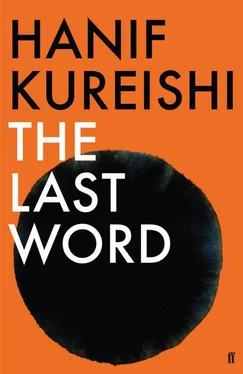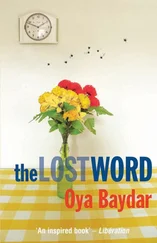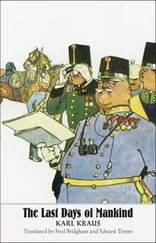Harry wanted Mamoon to know that he would ‘respect and honour’ him because he loved his work. Mamoon might have been mean, drunken and dirty at times, as all men and women were, but it was important that prurience didn’t distract him, or his readers, from the increasingly important lesson that great art, the best words and good sentences, mattered — and mattered increasingly in a degraded, censorious world, a world where the passion for ignorance had increased through religion. Words were the bridge to reality; without them there was only chaos. Bad words could poison you and ruin your life, Mamoon had once said; and the right words could refocus reality. The madness of writing was the antidote to true madness. People admired Britain only because of its literature; the pretty little sinking island was a storehouse of genius, where the best words were kept, made and remade.
If Harry felt guilty that he was attempting to look into the intimate life of a considerable man who had invited him to stay in his house, it wasn’t because Mamoon, with his high-mindedness, fastidiousness and dignity — a man formed and active before the Murdoch empire altered for good our ideas of a ‘private life’ — was beyond such trivialities.
But trivialities make a man, and, when he could find them, Harry brought and read to Mamoon bad reviews of books written by Mamoon’s contemporaries, friends or acquaintances, knowing that he would be unable to refrain from chuckling and purring with pleasure. Then Harry learned, during their runs through the lanes with the dogs, that Mamoon loved gossip, particularly if it was demeaning. Harry cursed himself for not noticing, in his reading, that humiliation was the touchstone of Mamoon’s character; it was where he had come from, and where he continued to find his enjoyment. His father had humiliated him continuously, driving him towards excellence and a lifetime of semi-repressed fury, and Mamoon never forsook its awful pleasures. Mamoon didn’t appear to respond to his wife’s kisses or caresses, or even her attempts to take his hand, but he was fascinated when there was prohibited contact between other people. Before he drove down to the country, Harry had to ring around the gossipocracy of agents, publishers and writers, to stock up with as many stories of infidelity, plagiarism, literary feuding and deceit, cross-dressing, backstabbing, homosexuality, and, in particular, lesbianism, as he could. At present Mamoon was fascinated by stories of formerly ‘normal’ women dragged to the ‘other side’ by ‘ les Sapphics ’, whom, he seemed to believe, had ‘mesmeric’ powers.
‘Anything lesbic to cheer me up?’ he’d say when Harry arrived from London. ‘Have their moustaches been twitching this week? Do they have fresh batteries in their vibrators? Let’s hike across the fields and discuss it fully.’
Harry had begun to feel like a Bloomsbury Scheherazade. But he had learned that Mamoon’s definition of lesbianism was almost non-discriminatory: he referred to all women writers as lesbian, including Jane Austen, Charlotte Brontë and Sylvia Plath. ‘I’m going to bed with a lesbian,’ he’d say, tucking an Austen under his arm and going upstairs.
‘At least you’re going to be having a good time,’ mumbled Harry.
‘I’m sorry to be trivial,’ said Mamoon. ‘I told Rob I’m just a hollow man. The novelist is the same — a trickster, deceiver, conman: whatever. But mostly he is a seducer.’
‘Aren’t you fascinated by seduction?’
‘Isn’t that all art is?’ said Mamoon. ‘Turn over, show us what you have, that is what you readers want.’
Even if Harry did have gossip, Mamoon rarely stayed up beyond nine in the evening, and it was soon after that hour when the revenge predicted by Alice — you could call it truth’s price — began to occur.
Harry was having peculiar experiences when alone in his bedroom.
The staff hadn’t been allocated time to clean his room. Perhaps Mamoon hadn’t encouraged them; he didn’t like guests, and few came. In Harry’s room there were dead flies and dust; the television didn’t work — all Harry could do was play FIFA and Grand Theft Auto on it, before watching movies on his computer until he fell asleep. He’d been driving back to London to see Alice and their friends whenever he could. Perhaps the close proximity to his subject, and to the countryside, was getting him down.
Harry had been brought up with his twin sporty, clever brothers in West London, one of them now a philosophy lecturer and the other a restaurateur. Unlike many of his friends, his parents hadn’t owned a country place, preferring to spend the weekends at galleries, exhibitions and the theatre, having picnics at Chiswick House, or throwing parties in the garden for those whom the boys sneeringly referred to as ‘intellectuals’, who talked about feminism, politics, and Lacan. These people’s idea of a good night out was to catch a double bill of Jean-Luc Godard at the ICA. Harry’s father, who never wanted to stop thinking about and, unfortunately, discussing the psyche — being much exercised by the philosophical problems of psychiatry and ‘notions of normality’ — believed there was no one to talk to in the countryside, and that the people living there were as bovine as the animals they reared.
But it wasn’t only this inherited aversion to the countryside which was making Harry discontented. After ten days, at about three in the morning, he was woken up by a terrifying male howling and yelling, as though something was being slaughtered. At breakfast Liana said, ‘Are you exhausted?’
‘But yes.’
She took Harry some eggs, and then began to dig her fingers into his shoulders as if she’d mislaid some loose change in his muscles. ‘Were you awake? The murderous yelling has begun again. It happened the last three nights but you didn’t hear. Your questions are condemning him to a terrible wakefulness.’
‘I’ve hardly started with the enquiries. If I ask him if he wants milk in his tea, he runs for the hills.’
‘Mamoon is a worldly man, with childish fears. He won’t tell me what these dreams are, but when he wakes up, soon after he sleeps, he cries like a baby. Sometimes he barks like a dog. Even the animals have insomnia then, and become suicidal. Please, swear to me, you won’t mention it in the book and embarrass us in London, Bombay and Rome.’
Harry said he couldn’t cram in every wink, burp and gesticulation. He took her hand as he turned to face her. ‘But Liana, surely you know indiscretion is the essence of biography? Who would read a portrait of a saintly saint?’
‘I don’t believe you are a filthy merchant only, Harry. What people want is upliftment, to learn the path to greatness so they can follow down it. Thank God I am here to educate you. And when the book is finished, you will bring it to me and I will strike out anything remiss with my sharpened pencil.’
He laughed. ‘You won’t be doing that, Liana.’
‘Rob has agreed. Mamoon would cut his balls otherwise. Who do you think you are — Joan Crawford’s daughter?’
‘I had no idea that Rob had made some sort of deal with you.’
‘What does it have to do with you?’
‘Sorry?’
‘When you hire a decorator to make the walls green, you don’t invite him to say he doesn’t like green. You invite him to put the green up and shut up.’
‘I’m only the decorator here?’
‘You do the paperwork. We do the rest. Coffee?’
He was compromised already. What else might she swear him to omit? Would he have to defy her? And if he knew he would have to do that, why couldn’t he say so now and make everything clear to her?
That was the least of it. Harry rang Rob to tell him how it was going, and how inhibited he felt already, as well as to complain about the other noises which prevented him from sleeping — the wildlife.
Читать дальше












